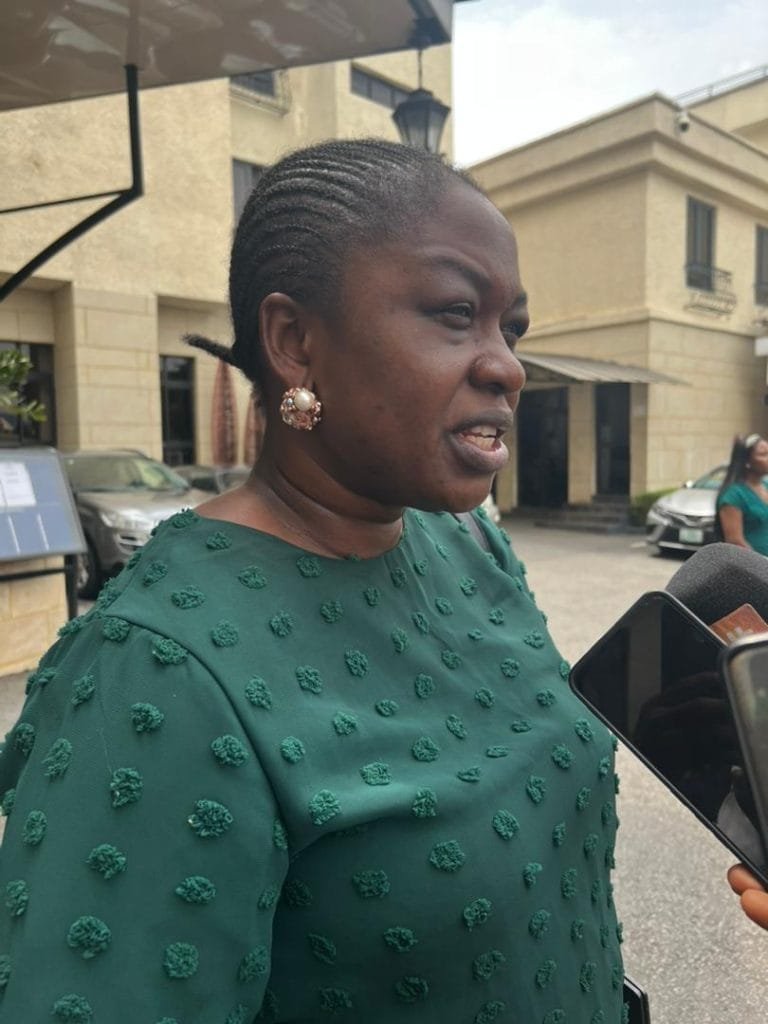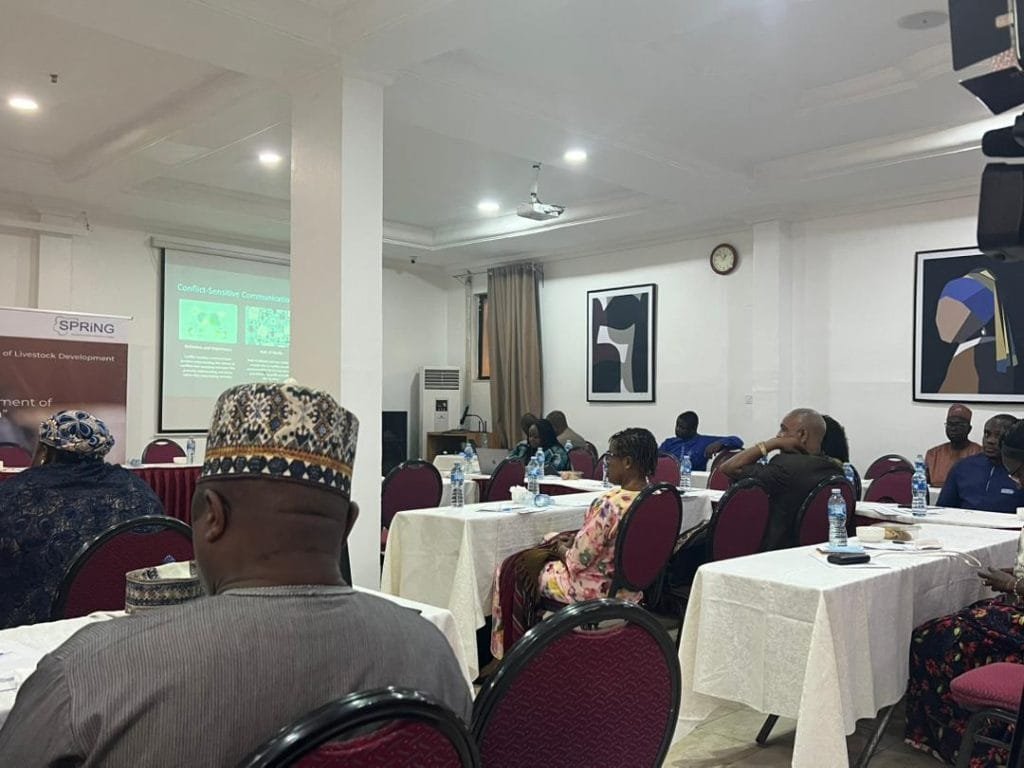In a strategic effort to strengthen the role of Media in development of the Livestock industry in Nigeria, the Strengthening Peace and Resilience in Nigeria (SPRiNG) programme, in collaboration with the Federal Ministry of Livestock Development, convened a capacity-building workshop for media professionals with focus on “The Role of Conflict-sensitive Communication in the Development of the Livestock Industry.”
SPRiNG Programme, a foreign Commonwealth & Development Office (FCDO) funded intervention is supporting the FMLD to develop evidence-based and conflict sensitive policies and strategies to promote productivity in the livestock sector, thereby fostering an enabling environment for sustainable peace and security in the country.
Speaking with AgroNigeria on the sidelines, an Independent Consultant for SPRiNG, Zigwai Ayuba emphasized the importance of media engagement in understanding and accurately reporting the complex dynamics fueling conflict in the livestock industry.


“Today, I was part of the group of trainers that facilitated an interactive session with journalists on conflict-sensitive communication to enable better reporting,” she said.
Ayuba stressed the critical role of journalists in shaping public understanding of the drivers of conflict, especially as it relates to livestock, land, and pastoral issues.
“It’s very important that media experts also understand that the Livestock Development Ministry is doing significantly well in ensuring that we reduce the number of conflicts across the country.
“Issues around livestock are big triggers for violence now. Land issues are major triggers too. Farmer-herder conflicts are a huge concern. And then there’s the pasture and fodder aspect,” she explained.
Ayuba also pointed to health-related concerns, noting that diseases such as anthrax, Newcastle disease, and other zoonotic illnesses are what the media needs to understand and report with accuracy.
“Because this is a new ministry, it is important that the media also get trained to understand the dynamics of what they would be dealing with. This training helps them avoid certain stereotypes that have dominated the space,” she added.
Highlighting the Ministry’s evolving approach, Ayuba explained that media engagement is a deliberate strategy to strengthen communication and public education around livestock development.
“They are deploying new approaches to ensure people do better — especially in terms of their sustainability strategies. That’s why they are engaging the media,” she added.
The training also touched on the importance of integrating media into policy development processes, with Ayuba acknowledging the journalists’ request to be more involved in shaping narratives.
“The media actually has a component in the new policies drafted by the Ministry. This engagement is strategic and will happen periodically so journalists can track developments and address challenges as they emerge,” she noted.
Ayuba assured that the Ministry is working toward a more inclusive field-based collaboration.
“This is something already in the pipeline. The Ministry will work with stakeholders down to the community level. A dedicated media team will also be responsible for press releases and communication, ensuring that journalists are kept well-informed,” she concluded.
The workshop, however, marks a significant step in fostering collaboration between the media and government in tackling conflict drivers in Nigeria’s livestock sector, with the broader aim of promoting a peaceful coexistence among farming and pastoral communities by strengthening the role of media in the development of the livestock industry in Nigeria.

